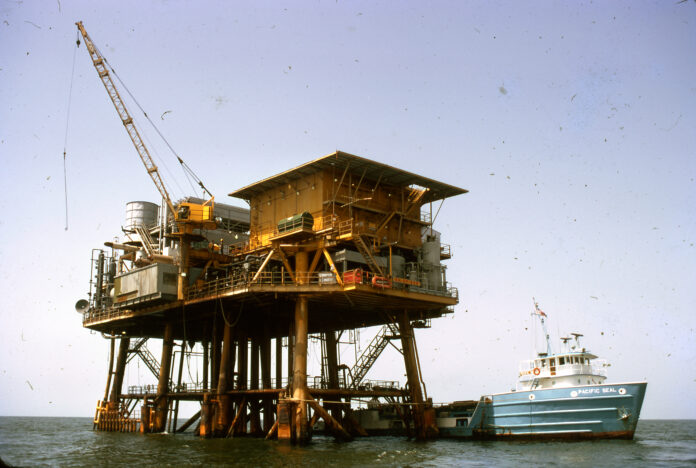Study finds that plugging shallower wells first would be more cost-effective
By LILLY ACKERMAN — science@theaggie.org
A recent paper by researchers at UC Davis and Louisiana State University estimated that it would cost around $30 billion to plug and abandon all inactive offshore oil wells in the Gulf of Mexico. It also informs where budget money for cleanup might most effectively be spent for maximum environmental benefit.
According to the paper, as 2021’s top producer of oil and gas in the world, the United States is home to over 4.4 million oil and gas wells. Offshore wells make up only 2.5% of this total, but they are responsible for 15% of all oil and gas production. Of these offshore wells, 14% are inactive and eligible for plugging and abandoning in the Gulf of Mexico, the epicenter of the U.S.’s offshore gas and oil operations.
Plugging and abandoning oil and gas wells that are no longer in use is crucial to avoid methane gas leaks, chronic oil leaks and other pollution that could result from a lack of monitoring and repairs. These leaks impact global climate change as well as the health of local ecosystems, and with the historical prevalence of using oil and gas for energy, there are plenty of wells that need to be plugged.
“[Plugging and abandoning] wells prevents underground saltwater from polluting fresh groundwater reservoirs, and it prevents leakage of hydrocarbons or other substances from the well,” the paper reads.
According to Dr. Mark Agerton, the lead author of the paper and an assistant professor in the Department of Agricultural and Resource Economics, no prior studies have focused specifically on these offshore wells, which are different in many ways to the wells on land.
“We thought it was important to specifically focus on the offshore wells because they tend to be bigger, the environmental risks are different and they’re more expensive to clean up,” Agerton said.
The authors found that plugging and abandoning all inactive offshore wells in the Gulf of Mexico would cost around $30 billion. Notably, wells in shallow water account for over 90% of these inactive wells, and plugging them would only cost about $7 billion of the $30 billion total.
This finding has important implications for prioritizing well clean up, especially since such a large proportion of these inactive wells can be plugged at a relatively small cost.
Compounding these implications is the finding that shallower wells also pose more of an environmental threat than deep water wells. For example, pollutants like methane emitted by deep water wells often dissolve in water and do not reach the surface, which means they don’t all enter the atmosphere and contribute to global warming.
“We also found that the environmental risks are much higher closer to shore in shallower waters,” Agerton said. “Spilling oil really far away from shore is not as much of a problem as spilling oil in the middle of a marsh, where it can quickly smother plants and wildlife.”
Liability for cleaning wells in federal waters falls on either the current owner of the well, or, if they have gone bankrupt, any of its previous owners. In the case of state waters, the liability falls on the state if the company that owns a well has gone bankrupt. Therefore, the authors also suggest that wells in state waters be prioritized to prevent as much of the financial burden from falling upon taxpayers as possible.
Ultimately, this paper can inform policymakers and the federal government about where to focus plugging and abandoning efforts to have the most positive impacts while minimizing expenses in the government’s budget.
According to Agerton, $4.7 billion is put aside to clean up idle and abandoned wells. Instead of trying to plug all of the wells that are eligible, the authors identified a solid starting place that can optimize this budget while minimizing environmental damage. The authors also suggest complimenting this budget with regulations that would further incentivize oil and gas companies to clean their wells themselves.
Written by: Lilly Ackerman — science@theaggie.org








